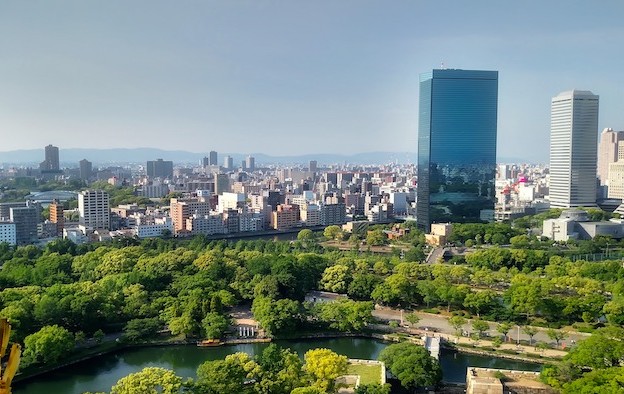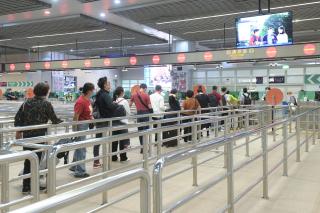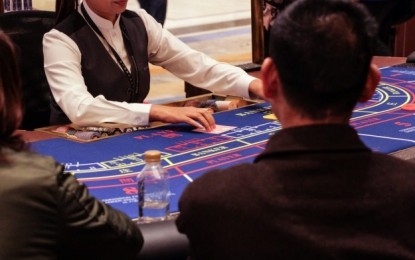Osaka vote no IR threat but city politics hazy: expert
Nov 03, 2020 Newsdesk Japan, Latest News, Top of the deck

The rejection in a referendum among Osaka voters, of a plan to merge the respective city and prefectural governments into four administrative wards under a unitary authority, makes no difference to the Japanese conurbation’s tilt at hosting a casino resort, but might indicate some haziness in the political scene in the city, says Japanese scholar Toru Mihara.
Local politics has been dominated for some years by a party called the Osaka Restoration Association, as the prefecture’s governor, Hirofumi Yoshimura, and the city’s mayor, Ichiro Matsui, are attached to its ticket. The party has been highly active in promoting the idea of hosting a casino resort locally, as a way of boosting inbound tourism, and has also sought to consolidate local government bodies for what it regards as reasons of efficiency.
Mr Mihara, a guest professor at Tokyo-based Toyo University, and specialising in public policy on gaming, told GGRAsia: “As the current governor and [current] mayor will be in post until 2023, the time should be sufficient to conclude an implementation agreement with potential investors,” regarding a casino resort or “IR”, as such schemes are known in Japan.
Japan’s national government has delayed until October 2021 the starting date for IR submissions by local governments. The new deadline for such applications is April 28, 2022.
Mayor Matsui announced on Sunday after the referendum reverse on merging the two Osaka local governments, that he would be retiring from politics after his gubernatorial term ends in April 2023. Governor Yoshimura’s current term also ends in April 2023.
Sunday’s local-referendum defeat of the plan to merge the two local authorities was the second such rejection by voters in five years.
Mr Mihara told GGRAsia that the Osaka Restoration Association “may lose political popularity in future,” and if the post either of governor or of mayor “goes to a different party,” that might “create some tension” in the local political scene. But he added that in any case, Osaka politics was likely to remain in the hands of conservatives – either the Liberal Democratic Party – which currently governs at national level – or the Osaka Restoration Association.
“At state [national] level, the relationship between the Liberal Democratic Party and the Japan Innovation Party” – the national grouping linked to the Osaka Restoration Association – “is not bad, but if you go down [to local level], different emotions or interests will emerge to be against each other,” Mr Mihara suggested.
But he added: “Their view on IR will be the same.. This Osaka metropolitan [government merger] plan… is totally a local issue.”
Osaka might need IR ‘plan B’
Japan-based gaming consultant Joji Kokuryo told GGRAsia he thought a key question for Osaka’s IR ambitions were such a project’s “costs and scope”.
“Whether or not the MGM [Resorts International] and Orix consortium is willing to continue forward, and if there is enough time for a ‘plan B’ if one becomes required, are also as important,” said Mr Kokuryo, managing director at Bay City Ventures Ltd. He was referring first to the sole qualified applicant to emerge so far as a commercial partner for Osaka to to advance its bid at national-government level.
The Japanese consultant told GGRAsia: “While the news of Mayor Matsui intending to step down after his current term is not necessarily positive news on the IR front, he was very public about his intentions in the event the referendum did not pass.”
Mr Kokuryo added: “This was always a risk that government, investors and consortium partners should have considered.”
But he further observed: “The fact remains, the city and prefecture’s IR policies are not going to change before the application period to the national government.”
Former casino executive Daniel Cheng, who worked on a pitch to get a casino licence in Hokkaido in northern Japan, said in a recent blog posting that the Osaka Restoration Association, if feeling “humbled” by Sunday’s referendum defeat, might “consider folding the cards” and “give up the bid for an Osaka IR altogether”.
“There is no glory for [Mayor] Matsui to pursue and win the licence only to step down as mayor in the spring of 2023,” he wrote.
Recent commentary elsewhere has suggested the first Japanese IR – up to three will be permitted in a first phase of liberalisation – might not launch until 2027.
Mr Cheng is a former senior executive at respectively casino investor Genting group and at Hard Rock International, where latterly he worked on exploring a Japan scheme in Hokkaido.
Related articles
-
 Governor confirms Nagasaki got IR...
Governor confirms Nagasaki got IR...Nov 26, 2024
-
 Further Japan IR phase to play for amid...
Further Japan IR phase to play for amid...Oct 31, 2024
More news
-
 Macau Nov GGR US$2.3bln, down 11pct...
Macau Nov GGR US$2.3bln, down 11pct...Dec 01, 2024
-
 Tai Kin Ip new economy secretary, leads...
Tai Kin Ip new economy secretary, leads...Dec 01, 2024
Latest News
Dec 01, 2024
Macau’s casino gross gaming revenue (GGR) in November reached MOP18.44 billion (US$2.30 billion), up 14.9 percent from a year earlier, but down 11.3 percent sequentially. That is according to a...Sign up to our FREE Newsletter
 (Click here for more)
(Click here for more)
Pick of the Day
US$123.3 million
Third-quarter net profit reported by global casino operator Genting Malaysia
Most Popular
 Macau non-gaming share of revenue trends down: Ben Lee November 27, 2024
Macau non-gaming share of revenue trends down: Ben Lee November 27, 2024  China eases Macau travel for Zhuhai, Hengqin residents November 29, 2024
China eases Macau travel for Zhuhai, Hengqin residents November 29, 2024  Pagcor casinos’ new slots into operation in mid-Dec November 27, 2024
Pagcor casinos’ new slots into operation in mid-Dec November 27, 2024









